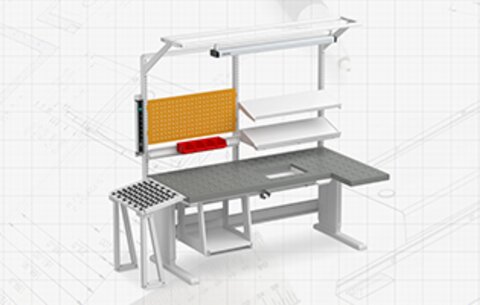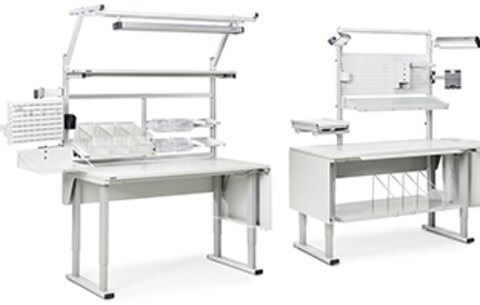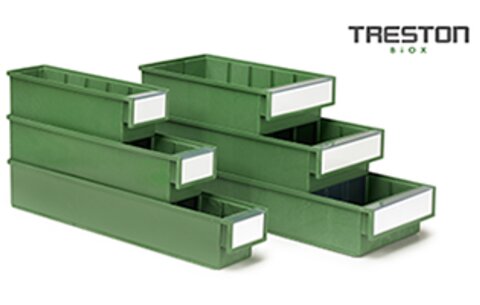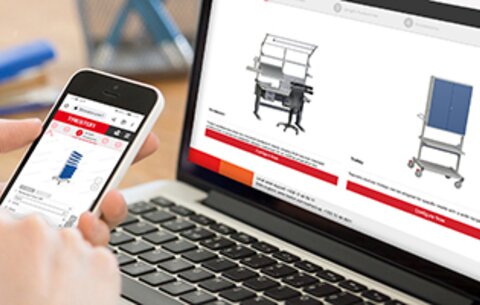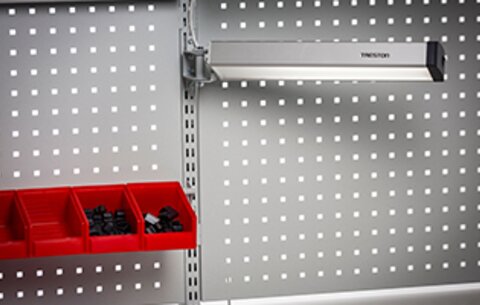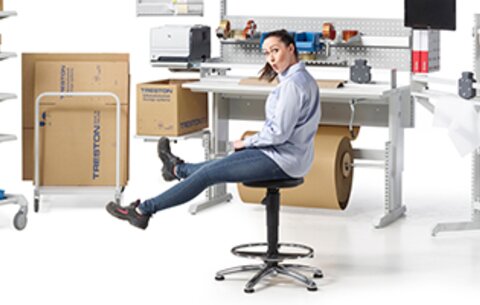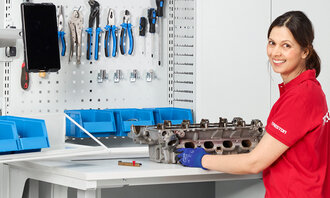

Modular workbenches for industrial use: answers to 7 common questions
In this blog post, we take a closer look at modular workbenches, focusing on their applications and benefits within industrial settings.

With modular workbenches, you don’t need to know what your workstation needs will look like in a few years. One day, they are used conveniently at an assembly line; another day, they adapt to serve as a packing bench.
Designing a modular workbench with 3D Configurator
1. What is a Modular Workbench?
Imagine having a workspace that can transform to meet your industrial workstation needs now and in the future, like a chameleon adjusting to its surroundings. This is precisely where the concept of modular workbenches shines brightly. From assembly lines to manufacturing environments , modular workstations are transforming industrial efficiency by offering adaptable and efficient solutions.
Unlike traditional fixed workbenches, modular workbenches are composed of modules that can easily be rearranged and combined to create a tailored workstation.
2. How do modular workbenches improve productivity in manufacturing environments?
Modular workbenches significantly improve efficiency and productivity in manufacturing environments by offering a flexible and organized workspace that optimizes workflow. A workstation where everything is in its place enables faster and more accurate processes, improves safety, makes it easier to switch turns between personnel, and helps to create a clean and less stressful atmosphere. Improved efficiency enables handling larger volumes, providing more revenue opportunities.
Their customizable design allows for tailored setups that streamline the assembly and production processes, improving organisation of the workstation elements in any setup, reducing unnecessary downtime, improving ergonomics, and enhancing overall efficiency. Additionally, the easy reconfiguration and adaptability of modular workbenches enable workers to access tools and materials more efficiently, reducing unnecessary movements and increasing overall efficiency in the manufacturing process.
Read also: Enhancing Assembly Line Efficiency, Quality, and Employee Well-Being: Ergonomic Workstations
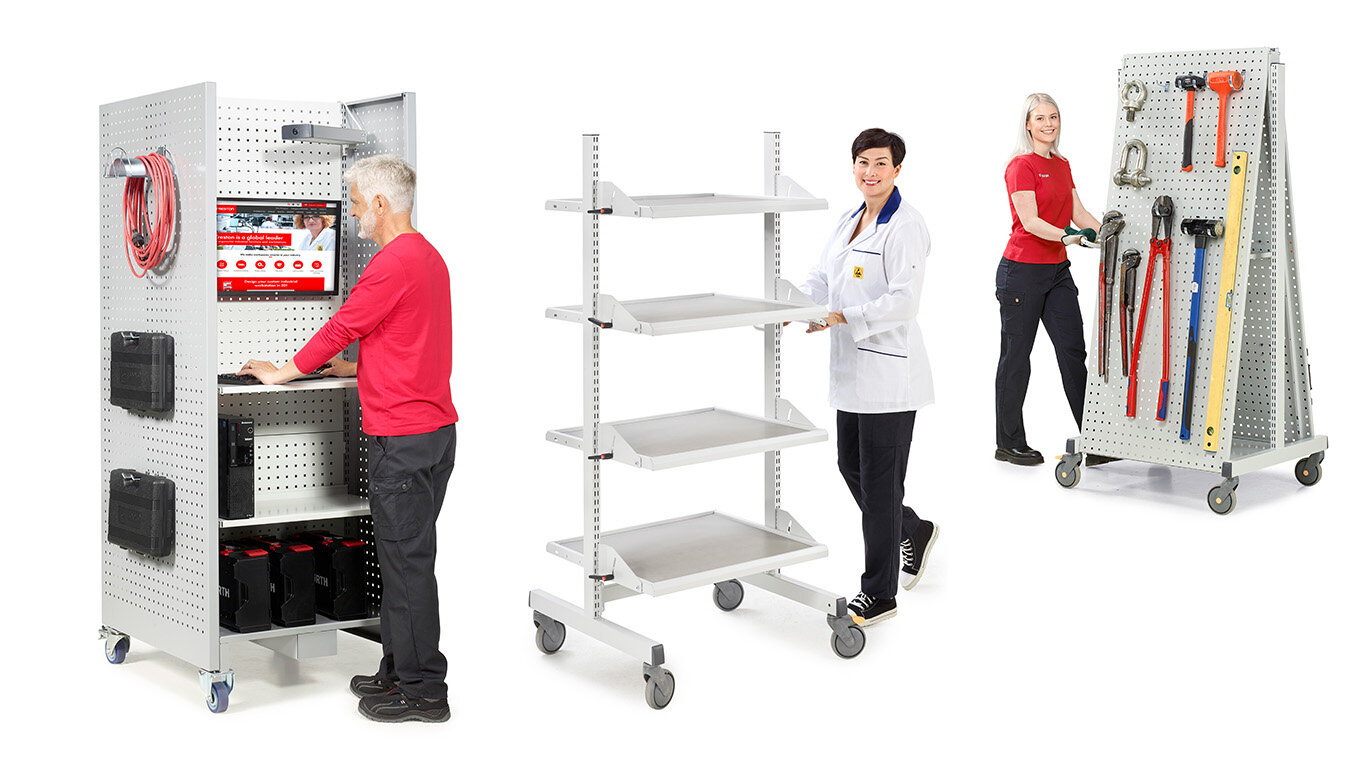
3. What are some common accessories available for modular workbenches?
- Shelves: Additional shelves can be added to the workbench to provide extra storage space for tools, equipment, and materials.
- Drawers: Drawer units offer organized storage for smaller items, tools, and parts, keeping the workspace neat and efficient.
- Perforated Panels and Tool Holders: Perforated panels and tool holders allow users to keep frequently used tools and equipment within easy reach, promoting a tidy and accessible workspace.
- Cabinets: Cabinets provide enclosed storage space for larger tools, sensitive equipment, or valuable materials, keeping them secure and protected.
- Bin Rails and Bins: Bin rails and part bins help with the storage and organization of small parts and components, making them easily accessible during assembly tasks.
- Lighting Solutions: LED lighting or task lighting can be attached to the workbench to enhance visibility and ensure adequate lighting for precision work.
- Power Rails and Electrical Outlets: Power rails and electrical outlets are integrated into the workbench to provide convenient access to power for tools and equipment.
- Tool holders: Tool holderss help keep tools well-arranged and accessible, reducing the time spent searching for the right tool.
- Keyboard, Printer and Monitor Mounts: For workbenches used in office or technical settings, keyboard, printer or monitor mounts provide a space-saving solution for computer work.
- Industry specific accessories for in-house logistics and packing. Get to know Treston’s modular packing benches: Packing products
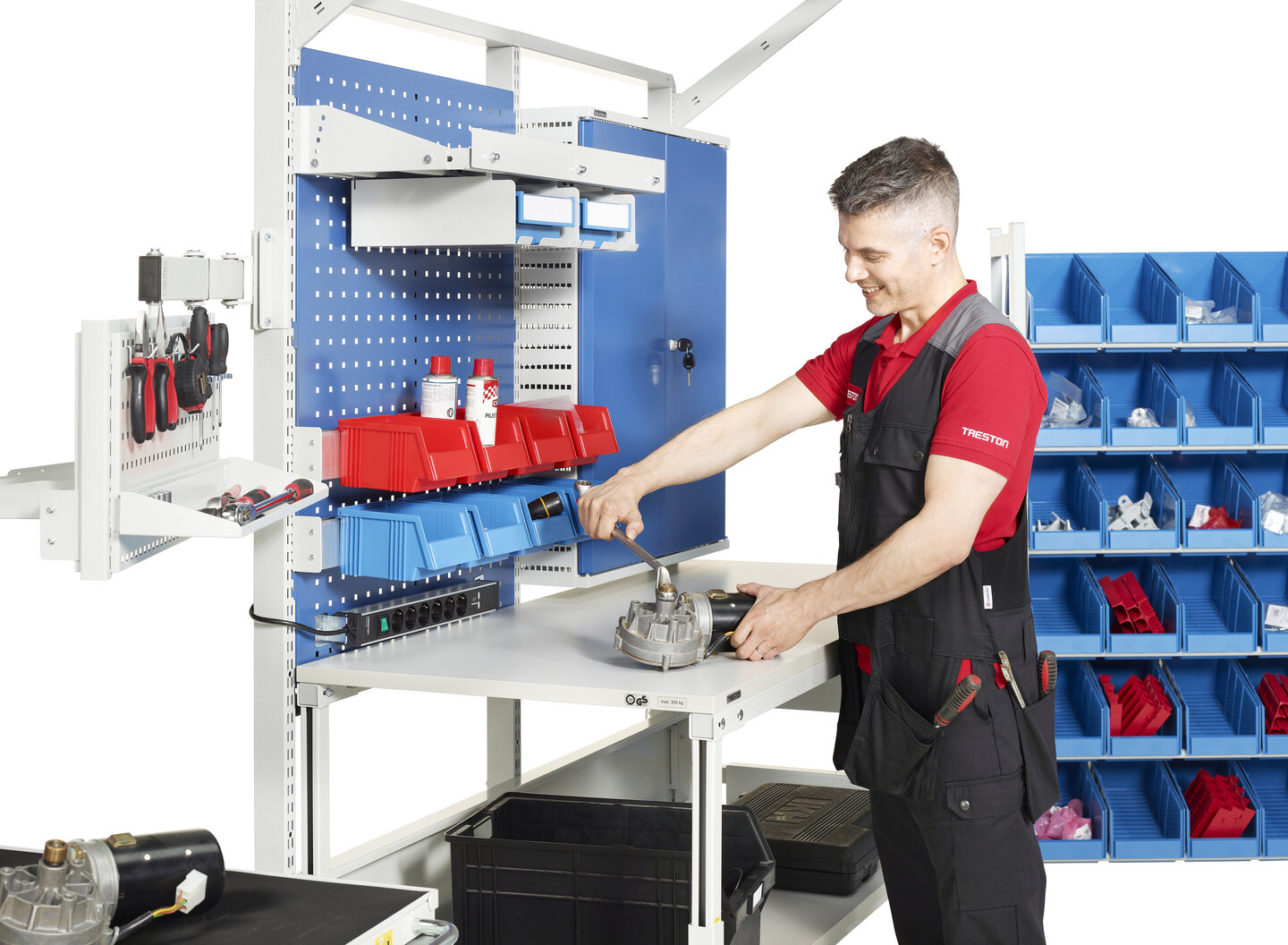
4. Can modular workbenches support heavy equipment and tools?
Yes, there are also modular workbench models which are designed to support heavy equipment and tools When selecting a modular workbench for heavy equipment and tools, it is essential to make sure that workbench's weight capacity aligns with the intended usage. Properly selecting a workbench that can support heavy loads ensures safety, stability, and long-term performance in industrial and demanding work environments.
Get to know Treston’s heavy duty modular workbenches: Workshop workbenches
5. How do I choose the right modular workbench for my needs?
To choose the right modular workbench model for your needs, consider factors such as your specific workspace requirements, workbench size and configuration, weight capacity, modular components and accessories needed, material and durability, storage and organization needs, mobility and your budget.
Within Treston's range of modular workbenches, you'll discover the ideal model to meet your specific industrial needs. The majority of our workbench designs are modular, offering enhanced flexibility. Consider, for instance, the Concept Workstation – a prime example of our utmost versatile modular workbench model.
Read also: How to choose the right adjustable workbench?

6. How do I design a modular workbench?
Discover a new era of workspace personalization with Treston's 3D configurator. Begin by inputting dimensions, then explore a range of modular components and accessories.
Watch your workbench take shape as you make selections.
Customize details, from materials to add-ons like lighting and power outlets. Visualize your design to make your choice easier. Elevate industrial efficiency by crafting a workspace tailored to your needs, unlocking the potential of modular workbenches.
Designing a modular workbench with 3D Configurator
7. What types of industries can benefit from using modular workbenches?
With modular workbenches, you don’t need to know what your workstation needs will look like in a few years, as modular workbenches can adapt to different needs. One day, they are used conveniently at an assembly line; another day, they adapt to serve as a packing bench.
Modular workbenches offer versatile benefits to a wide range of industries. Some examples of the industries that can benefit from using modular workbenches include:
- Manufacturing and Assembly: In manufacturing and assembly settings, modular workbenches provide flexibility to adapt to various production processes, improving efficiency and organization.
- Warehouse and Logistics: In warehouse and logistics operations, modular workbenches support efficient order fulfillment and inventory management.
- Electronics and Electrical Engineering: Modular workbenches facilitate efficient assembly, repair, and testing of electronic components and devices.
- Scientific Research and Development: Laboratories can utilize modular workbenches to organize equipment and tools for various experiments and research tasks.
- Automotive Repair and Maintenance: Garages and auto workshops can optimize their workspace with modular workbenches, enhancing productivity during repairs and maintenance tasks.
- Educational Institutions: Schools and universities can use modular workbenches in workshops and laboratories for hands-on learning experiences.
- Woodworking and Carpentry: Woodworkers and carpenters benefit from customized workstations to suit specific projects, allowing easy access to tools and materials.
- Metalworking and Welding: Metalworkers and welders can benefit from adaptable workstations to accommodate different projects and equipment.
- Healthcare and Pharmaceutical: Modular workbenches in healthcare facilities aid in organizing medical equipment and supplies for enhanced workflow.
- Leather and Luxury Goods Manufacturing: In the production of leather and luxury goods, modular workbenches provide a well-organized space for crafting high-quality items with precision and attention to detail.
These are just a few examples, but the versatility of modular workbenches makes them applicable to various other industries, each benefiting from their ability to adapt and enhance productivity in their specific work environments.

